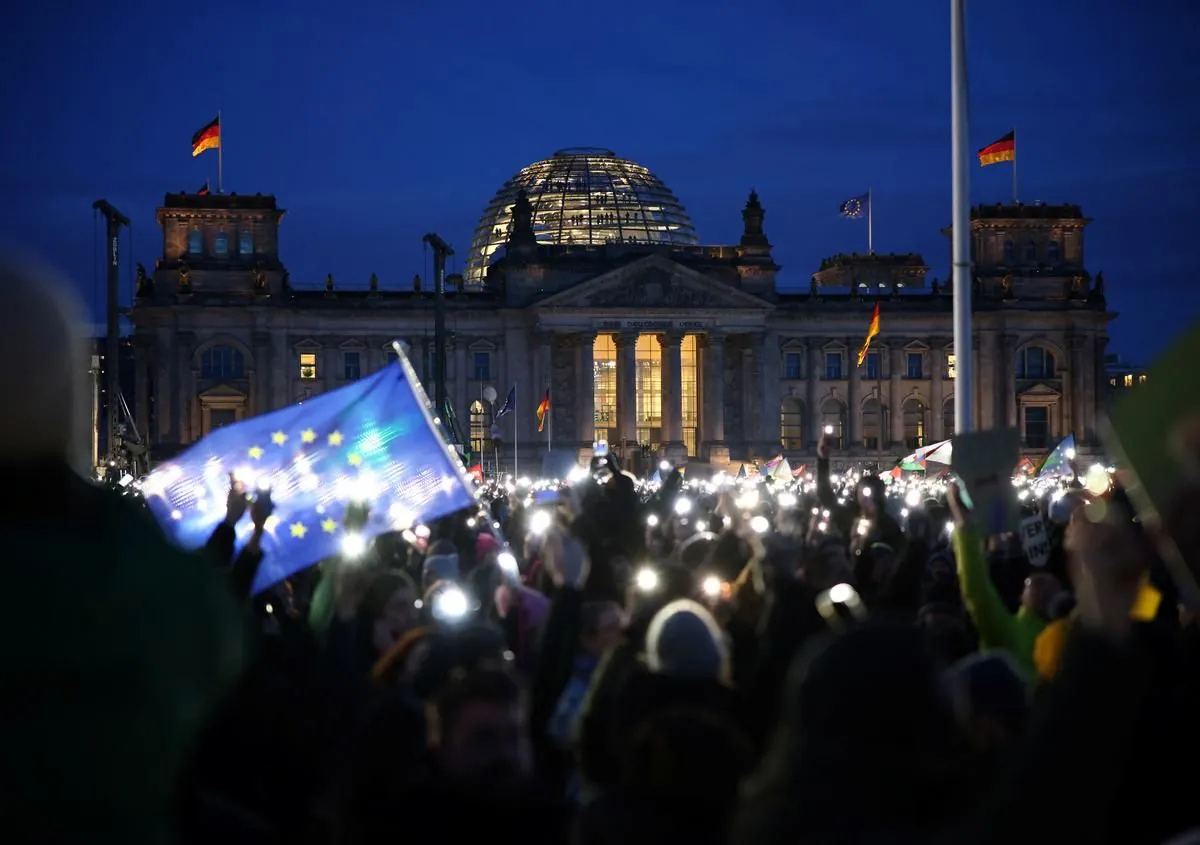Far-Right AfD Gains Ground in German State Elections, Challenging Political Norms
The Alternative for Germany party secured unprecedented victories in recent state elections, raising concerns about the rise of far-right politics. Mainstream parties struggle to respond as traditional barriers erode.

In a significant shift in Germany's political landscape, the far-right Alternative for Germany (AfD) party has achieved unprecedented success in recent state elections. This development has sent shockwaves through the country's established political order, challenging long-standing norms and raising questions about the future of German democracy.
The AfD, founded in 2013, secured a historic victory in Thuringia and came second in Saxony, marking the first time a far-right party has won a state in Germany's postwar history. These results have put immense pressure on the so-called "cordon sanitaire" - a political practice aimed at isolating extremist parties.
Chancellor Olaf Scholz's Social Democrats performed poorly, garnering only 6% of the vote in Thuringia. The chancellor urged "all democratic parties" to form a government "without right-wing extremists," highlighting the dilemma faced by mainstream parties.
The AfD's rise reflects growing discontent with established politics and concerns over immigration. Andrea Römmele, dean at the Hertie School of Governance, noted that many voters see the AfD as competent in addressing migration and security issues.

"The voters have made a clear decision. They want the AfD to participate in the government."
This statement underscores the party's ambition to break through political barriers and gain legitimacy.
The AfD's success poses significant challenges for coalition-building. In Thuringia, where the party won a third of the votes, forming a government without their involvement has become increasingly complex. Some analysts suggest the possibility of external support for a minority government.
Germany's political system, characterized by its multi-party structure and 5% threshold for parliamentary representation, is now under strain. The traditional "Volkspartei" concept, referring to major catch-all parties like the Christian Democratic Union (CDU) and Social Democrats (SPD), is being challenged by the AfD's claim to this status.
The situation is particularly pronounced in former East German states, which have lower population density and economic output compared to the west. These regions have become strongholds for the AfD, reflecting ongoing economic and social disparities.
Germany's strict laws against Nazi symbolism and Holocaust denial have not prevented the AfD's rise. Björn Höcke, the party's leader in Thuringia, has been fined twice this year for using banned Nazi slogans, yet his party's popularity continues to grow.
As Germany grapples with this new political reality, the country's post-war commitment to preventing the resurgence of far-right extremism is being tested. The coming months will be crucial in determining how the nation's democratic institutions and mainstream parties respond to this challenge.


































